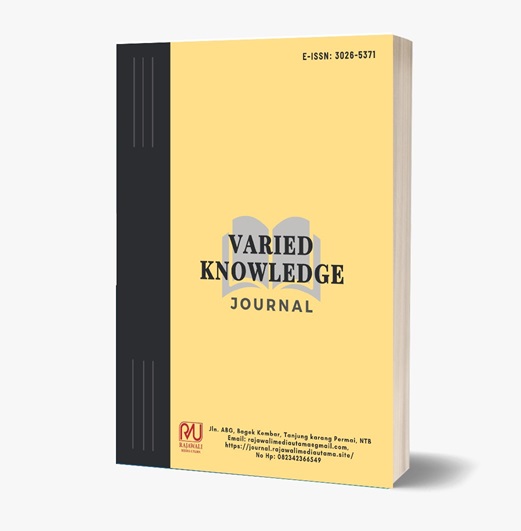Manajemen Laba Untuk Menghindari Penurunan Laba
DOI:
https://doi.org/10.64070/vkj.v1i3.23Keywords:
Real Earning Management, Accrual Earning Management, Earning decreasesAbstract
This research aims to examine the type of earnings management used to avoid earnings decreases. The population of this research is manufacturing companies listed on the Indonesia Stock Exchange during 2017-2020. The sampling technique used purposive sampling with a sample size of 102 companies and 408 observations during 4 years. The analysis technique uses multiple linear regression analysis. This research results real earnings management is used by managers to avoid earning decreases. The real earnings management method used by managers to avoid earning decreases is to increase the company's cash flow. Managers in manufacturing companies can increase company’s cash flow by manipulating sales such as giving discounts or extending credit terms.
References
Burgstahler, D., & Dichev, I. (1997). Earnings management to avoid earnings decreases and losses. Journal of Accounting and Economics, 24, 99–126.
DeAngelo, H., DeAngelo, L., & Skinner, D. J. (1996). Reversal of fortune dividend signaling and the disappearance of sustained earnings growth. Journal of Financial Economics, 40, 341–371.
Dechow, P. M., & Skinner, D. J. (2000). Earnings management: Reconciling the views of accounting academics, practitioners, and regulators. Accounting Horizons, 14(2), 235–250. https://doi.org/10.2308/acch.2000.14.2.235
Graham, J. R., Harvey, C. R., & Rajgopal, S. (2005). The economic implications of corporate financial reporting. Journal of Accounting and Economics, 40(1–3), 3–73. https://doi.org/10.1016/j.jacceco.2005.01.002
Handayani, R. S., & Rachadi, A. D. (2009). Pengaruh ukuran perusahaan terhadap manajemen laba. Jurnal Bisnis dan Akuntansi, 11(1), 33–56.
Kahneman, D., & Tversky, A. (1979). Prospect theory: An analysis of decision under risk. Econometrica, 47(2), 263–291.
Livia, I. (2014). Praktik manajemen laba untuk menghindari kerugian (Studi empiris pada perusahaan manufaktur yang terdaftar di Bursa Efek Indonesia tahun 2010-2012). Jurnal Ilmiah Mahasiswa FEB UB, 3(1), 9–25.
Prarama, A. (2022, May 31). Dicecar bursa, laporan keuangan Bukalapak kembali bermasalah? CNBC Indonesia. Retrieved from https://www.cnbcindonesia.com/
Roychowdhury, S. (2006). Earnings management through real activities manipulation. Journal of Accounting and Economics, 42(3), 335–370. https://doi.org/10.1016/j.jacceco.2006.01.002
Scott, W. R. (2015). Financial accounting theory: Seventh edition. Pearson. https://doi.org/10.4324/9780203784655
Subekti, I. (2012). Accrual and real earnings management: One of the perspectives of prospect theory. Jurnal of Economics, Business, and Accountancy, 15(3), 443–456.
Vajriyanti, E., Subekti, I., & Ghofar, A. (2016). Pengaruh mekanisme komite audit terhadap manajemen laba: Laba untuk menghindari kerugian. Jurnal Reviu Akuntansi dan Keuangan, 6(1), 801–810. http://ejournal.umm.ac.id/index.php/jrak/article/download/5076/5044
Yuliana, F. (2019). Pengaruh praktik manajemen laba menjelang IPO terhadap underpricing saham dengan reputasi underwriter sebagai variabel moderasi. JIM FEB UB, 7(2). http://www.nber.org/papers/w16019
Zang, A. Y. (2012). Evidence on the trade-off between real activities manipulation and accrual-based earnings management. Accounting Review, 87(2), 675–703. https://doi.org/10.2308/accr-10196
Zhu, T., Lu, M., Shan, Y., & Zhang, Y. (2015). Accrual-based and real activity earnings management at the back door: Evidence from Chinese reverse mergers. Pacific Basin Finance Journal, 35, 317–339. https://doi.org/10.1016/j.pacfin.2015.01.008















